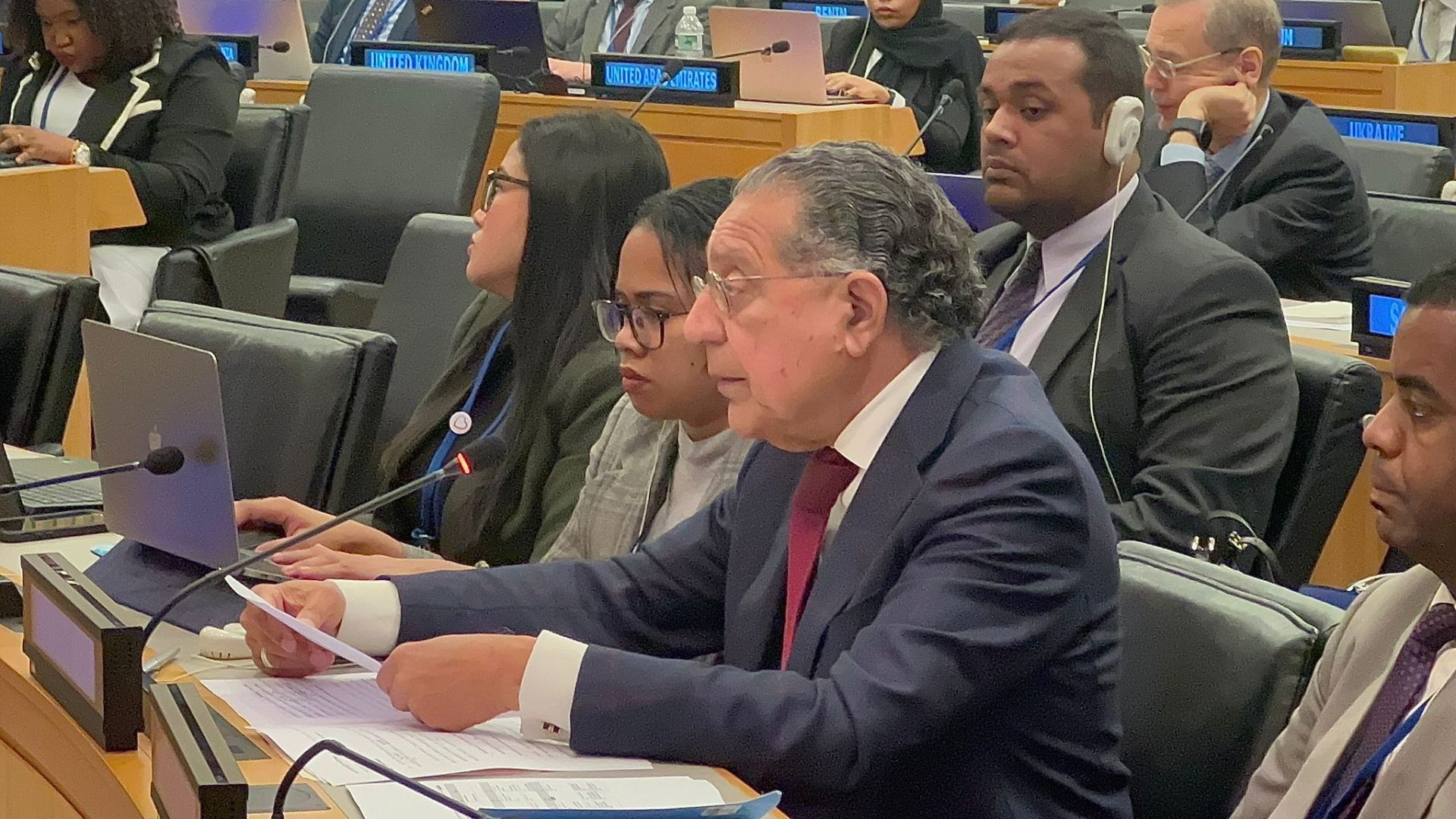 Statement by Ambassador Munir Akram, Permanent Representative of Pakistan to the United Nations, at the Second Committee General Debate (2 October 2023, 1000 hours) New york: Let me take this opportunity to congratulate you and other members of the Bureau on their election and express the full support of the Pakistan delegation for the success of the Second Committee.
Statement by Ambassador Munir Akram, Permanent Representative of Pakistan to the United Nations, at the Second Committee General Debate (2 October 2023, 1000 hours) New york: Let me take this opportunity to congratulate you and other members of the Bureau on their election and express the full support of the Pakistan delegation for the success of the Second Committee.
Mr. Chair,
We live in an age of enlarging inequality. The world economy is growing; but growing unequally; creating the super-rich and the super-poor; with a structure that exploits not only the people but also rampantly exploits and despoils the planet. We have the broad blueprint to redress inequality and poverty – the 2030 Agenda and its 17 SDGs and 169 targets, the Addis Ababa Action Agenda, the UNFCCC and its Paris Agreement, underpinned by the principles of the UN Charter and more specifically the principle of Common but Differentiated Responsibility. Today, the development gains of decades on reducing poverty and hunger have been reversed by COVID, Climate and Conflict. Over 800 million live in extreme poverty; 2.4 billion people face food insecurity. 59 countries are in debt distress. Meanwhile the earth burns; climate disasters are engulfing the climate vulnerable, as illustrated by the epic floods in Pakistan last year.
Mr. Chairman, As the Secretary-General has stated, we must ‘rescue’ the SDGs. We must save our planet. As in any rescue, there are several emergency reforms that must be taken immediately. These are reflected in the commitments made in the Political Declaration adopted at the SDG Summit, including on:
• The SDG Stimulus;
• Re-channelling SDRS;
• Debt;
• reform of the international financial architecture;
• Enlarged lending by the multilateral development banks.
We need a mechanism to promote and monitor the implementation of these important commitments. Pakistan will initiate consultations on this. Quick impacts can come from: expanding concessional and grant lending by the multilateral, regional and national development banks, including to climate impacted middle income countries, re-channeling the $400 billion un-utilized SDRs to finance the SDGs and Climate Goals, and providing debt relief to the 59 debt distressed countries through a speedy multilateral process, including extension of debt payments suspension, suspension of IMF surcharges; and debt for SDG/Climate swaps.
We must also initiate the structural reforms we have agreed to undertake, in particular the reform of the international financial architecture to reflect equity, vulnerabilities and the specific needs of developing countries. New IMF allocations of SDRs should respond to the liquidity needs of countries. We also need a new sovereign debt architecture independent of both creditors and debtors, with agreed criteria and frameworks for fair and inclusive debt suspension, reduction and liquidation.
Pakistan commends the African Group’s proposal on the reform of the tax system adopted last year. We will work with the African Group to secure approval for the conclusion of an international tax treaty negotiated within the United Nations. We will also consult on ways to secure implementation of the 14 recommendations of the FACTI Panel.
The realization of the SDGs is now linked closely with the implementation of the climate and environmental goals. This Committee must propel COP28 to secure the fulfillment of the commitments of industrial country parties to provide $100 billion plus in climate finance; allocate at least half to adaptation; operationalize the Loss & Damage Fund; and accelerate their emission reductions sufficiently to keep the 1.5 degree centigrade goal alive. The transition to a global ‘green’ economy will require investment of at least $1 trillion annually in sustainable infrastructure. The UN should establish a mechanism which can facilitate public and private investment in sustainable infrastructure in developing countries, including by assisting them in preparing a pipeline of bankable projects. Pakistan will revive consultations on this proposal through the Group of Friends.
International Trade must, once again, become an engine of growth and development. Unilateral trade restrictions must be dismantled. We must resist new ‘environmental’ protectionism, such as the border carbon tax. The WTO’s development agenda must be revived: preferential treatment for developing countries. Last but not least, in our knowledge based global economy, technology is the trump card. Bridging the digital divide is key to future development. But it is also vital to treat technology, increasingly, as a global public good. I wish you every success in the important endeavors of this committee.
Sub Editor: Ghufran